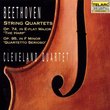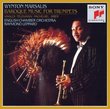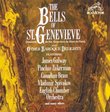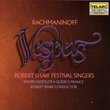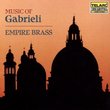| All Artists: Ottorino Respighi, Jesús López-Cobos, Cincinnati Symphony Orchestra Title: Ottorino Respighi: Church Windows/Brazilian Impressions/Roman Festivals Members Wishing: 1 Total Copies: 0 Label: Telarc Release Date: 2/22/1994 Genre: Classical Styles: Forms & Genres, Theatrical, Incidental & Program Music, Symphonies Number of Discs: 1 SwapaCD Credits: 1 UPC: 089408035623 |
Search - Ottorino Respighi, Jesús López-Cobos, Cincinnati Symphony Orchestra :: Ottorino Respighi: Church Windows/Brazilian Impressions/Roman Festivals
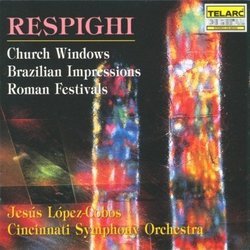 | Ottorino Respighi, Jesús López-Cobos, Cincinnati Symphony Orchestra Ottorino Respighi: Church Windows/Brazilian Impressions/Roman Festivals Genre: Classical
|
Larger Image |
CD DetailsSimilar CDsSimilarly Requested CDs
|
CD ReviewsRapturuous Respighi Robert E. Nylund | Ft. Wayne, Indiana United States | 01/06/2004 (5 out of 5 stars) "This writer long has admired Arturo Toscanini's RCA Victor recordings of Ottorino Respighi's "Roman Cycle," which includes "Fountains of Rome," "Pines and Rome," and "Roman Festivals." Certainly for interpretation of the Respighi symphonic poems, Toscanini has been hard to beat. For one thing, Toscanini was a close friend of the composer and was entrusted with the world premiere of "Roman Festivals," given in Carnegie Hall in 1929 with the New York Philharmonic.The recorded performances with the NBC Symphony, made between 1949 and 1953, are hallmarks. The only thing missing in those vintage recordings is the exceptional sound that has been achieved in recent years, particularly in Telarc's amazing digital recordings. On this CD we get to hear the last of the "Roman Cycle," "Roman Festivals" in a powerful, very exciting performance by the very fine Cincinnati Symphony Orchestra under Jesus Lopez-Cobos. All the stops are pulled out, from the roaring lions as the Christians are martyred in the Coliseum to the raucous, sometimes comical "Epiphany" finale. I have little doubt that Toscanini would have approved of this recording and wished that RCA had been able to capture the volume during the fortissimo sections. (It has been noted that Toscanini tried to get RCA to record more volume and was told by the engineers that the 1949 recording equipment simply couldn't handle it. He said he didn't care if they broke the tape machine. Undoubtedly, he would have smiled over the technical advances that have occurred in recording since then.)I first discovered "Church Windows" in the ground-breaking Columbia recording by Eugene Ormandy and the Philadelphia Orchestra. At least that recording had stereo and full range high fidelity. I found it a very enjoyable performance and am glad that Sony has reissued it. The only thing lacking there was a pipe organ because Ormandy refused to record in the orchestra's home base, the Academy of Music, after it was remodeled in the mid-1950's and had to resort to Allen electronic organ. In this Cincinnati performance, there is often absolute grandeur and an overwhelming orchestral and organ climax during the final section, "Saint Gregory The Great." The symphonic poem also has moments of great beauty and sensitivity, particularly in "The Flight Into Egypt" and "The Matins of St. Clare." This music is filled with deep feeling and spirituality. Typically, Respighi makes considerable use of Gregorian chants. Overall, this is a memorable performance of music that is often neglected in favor of the more familiar "Roman Cycle," especially "Pines of Rome."Antal Dorati was probably the first to make a stereo recording of "Brazilian Impressions," back in the glory days of Mercury "Living Presence." The Cincinnati recording is quite enchanting and mysterious at times, faithfully capturing the musical images that Respighi depicted after spending time in exotic Brazil. Remarkably, Respighi's "Brazilian Impressions" are generally more subdued than those by the French master Darius Milhaud or Brazil's own musical giant, Heitor Villa-Lobos. Still, it is a very intriguing and fascinating work and is given a fine performance." Majestic, Powerful and Superbly done by Lopez-Cobos K. N. Nelson | California, USA | 01/05/2001 (5 out of 5 stars) "In classical music, there seems to be a wonderfully strange phenomenon wherein a certain conductor will emerge with a far greater and more profound, intuitive understanding of a specific composer than others in the field. The result, as in this recording is one that is simply stunning and magnificent to hear. Jesus Lopez-Cobos conducting the Cincinnati Symphony Orchestra is truly a master of bringing the music of Ottorino Respighi to brilliant life, especially through his interpretation of "Roman Festivals" where the brash and forward trumpets accompanied by a booming drum seem to shake the air with their power and prove, in the 4th movement, "The Epiphany" just how structurally magnificent Respighi's vision was. ' In "Church Windows" one can actually visualize the artists conception of the saints especially in the second movement "Saint Michael the Archangel" and the 4th movement "Saint Gregory the Great" which inspire the sense of beauty as well as the terrible power overarching frail humanity who gaze upon these works of art. This grandeur of saints and angels is captured both in delicate as well as striking tonal palettes that inform the listener of the colors and shapes of the figures being studied with an eye toward intensity."Brazilian Impressions" is beautiful but less clear to this reviewer. One is left with the sense of a poem or a snapshot rather than a true musical essay. However, "Tropical Night" promotes a sense of the lush and sensual, and "Song and Dance" is playful and piquant. All in all, this is a recording to cherish and to study for it offers never ending surprise and delight through the genius of Lopez -Cobos." Vive La Befana! Ed Luhrs | Long Island, NY USA | 03/13/2001 (5 out of 5 stars) "This recording is a great deal of fun. Church Windows combines great energy and Respighi's brilliant skill as an orchestrator. Great music for long car trips! It evokes the aesthetic spirit of ancient/medieval times while offering a generous helping of Romantic bombast. The pipe organ grabs you when you least expect it.Brazilian Impressions is too soft in parts to hear in the car; it's not the most energetic piece, but Cobos and the Cincinnati O. really bring out its finer points; above all, Respighi's detailed orchestration comes through in the performance. It's sweet for reflective, quiet moments. One major reason to get a copy of the performance: the final track of Roman Festivals--"The Epiphany," or "La Befana" in Italian. All of Roman Festivals is wonderful, but I just want to hone in on this one movement. I call "The Epiphany" my birthday song, because I was born on January 6, '73, the day of the Epiphany festival. In this recording, the sound quality, the performance, and the sheer brilliance of this final movement of Roman Festivals is unbeatable. This is music to wake the dead, to ride the open road, to play at a wild, hedonistic party. It is sheer insanity, an unbelievably brilliant composition. Just listen to what the composer does to Italian folk melodies--and he almost never uses folk tunes like this--the twisting, and jumping, the jeering, the raspberries, the histrionics! Cobos captures all of this and builds you right up to the final romp. This performance just has to be the single most brilliant rendering of "The Epiphany" out there. Two major reasons why this recording rocks: performance and sound quality. I thank Cobos, the orchestra, and Telarc engineering for that. Overall, in this recording you have a true gem, something to return to for colorful inspiration."
|

 Track Listings (11) - Disc #1
Track Listings (11) - Disc #1